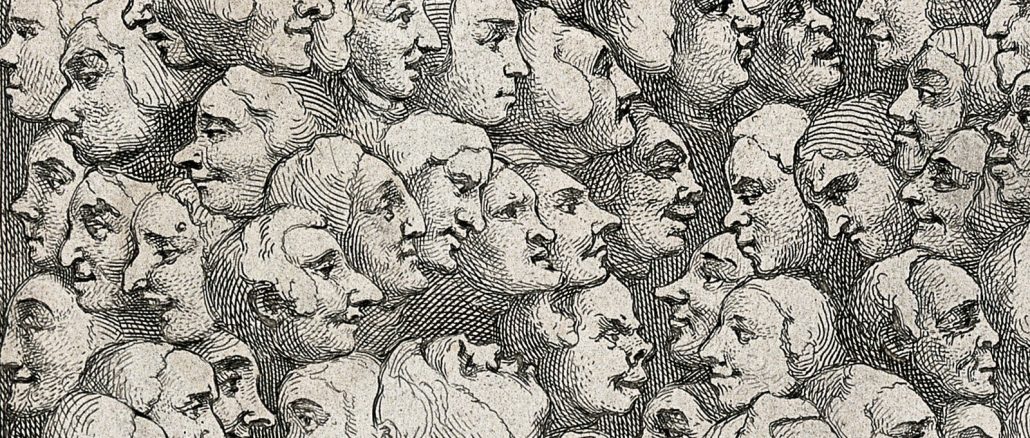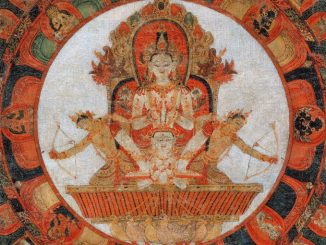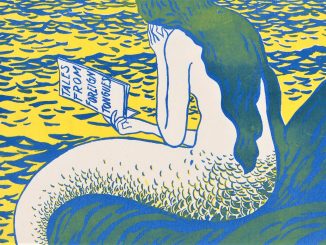
The clock strikes midnight. The music stops. Disco lights slow. A spotlight beams onto the stage. A disembodied male voice proclaims the start of the next event. Different music, sultry music, comes on. Women slip away from the center of the hall into the shadows of the corners, to the more neutral territory of the bar, to the privacy of the bathroom. Men stay. Some stocky, some slight, some preppy, some casual, some drunk, some stoned, some hairy, some clean-shaven, yet they are all the same, united, in the moment. They fist-pump, they shout, they yell as a young woman emerges from the right-wing of the stage and parades across, trapped in the circle of the spotlight’s harsh glare. With tiny triangles of Lycra riding the nipples of implanted breasts and dental floss-thin strings cutting between cheeks of polished buttocks, she gyrates to the seductive music, balancing on platform heels, thrusting chest and backside in turns toward the leering spectators. As the first “girl” exits the stage and another emerges, the men howl with excitement. The more provocative, the more sexual, the more titillating the dancer’s moves, the louder the men’s cheers, which, in the increasing frenzy, sound more and more like jeers. The dancer with the loudest reaction from this audience will leave with 500 dollars. Then—abruptly–it is over. The stage darkens, music pounds from giant speakers once again, people resume dancing as if nothing has happened.
But I cannot.
Earlier that summer night in 1991, my friend and I have found advertised in the local paper a nightclub that featured dancing to music we liked. I remember scanning the small blurb carefully before committing to a plan, making sure of the location—near Beverly Hills, the music—a mixture of pop and rap, the hours—nine to two, the price of admission—ten dollars, and, most important, the absence of two words—bikini contest. After dinner at a restaurant where, stretching our money, we share a chopped salad and basket after basket of bread, I drive us in my first car, a sturdy Volkswagen Jetta, to the club. To park, we must leave the city streets and pass through tall, spiky iron gates into a walled complex. Once inside the dance hall, we join the throng of revelers dancing to the DJ’s trendy medleys, drinks from the bar in hand.
Watching each contestant sell herself that night for the chance of winning 500 dollars, alone in the hot glare of light, face shimmering with sweat and glossy lips spread in a fixed smile, while simultaneously aware of the faces of the men devouring the woman with entitled eyes and hearing their whoops and whistles, makes me sick with an anger that, despite its intensity, is undercut by a sense of powerlessness. I feel alone, very alone, as if I am the only person in the club, in the city, in the country, who cares, who sees the contest on the stage for the grotesque exploitation that it is. Instead of seeing beauty or art in a dancer moving skillfully to intoxicating rhythms, I see a body exposed for consumption, like a shiny car at a dealership, or a caged animal in a zoo, or a slave on the auction block. When it is over, finally, it is as if I awake from a dream, a bad one, not with a welcome sense of relief but with the claustrophobia of finding myself in the same reality. I realize I have been standing for the entire contest in the middle of the dance floor, a lone woman surrounded by a sea of men—riveted by the spectacle, rigid with tension, arms tightly crossed in front of me. I feel compelled to act, to do something—if I do not, I will implode.
I make a decision.
Turning, I squeeze my way through the crowd of men and head toward the bar, where, after catching the bartender’s attention, I ask to speak to the manager. He shrugs his shoulders: he’ll “see what he can do.” His mild confusion and bemused indifference clash with my outrage and, to my shame, make me question my decision, suddenly embarrassed. I feel my resolve begin to shrink, shriveling like an insect stranded on hot tarmac. Increasingly tense with anxiety, I hover by the bar, waiting. Some time later, I see a stocky man approaching, scowling with irritation. Hurrying to me, he leans in, very close, positioning his face inches from mine. “WHAT DO YOU WANT?” “I want to speak to the manager.” “I’M THE MANAGER.” Nervous and self-conscious, I rush my words. “I need a refund–I’m against bikini contests–I don’t want to support them—You didn’t advertise the contest—that’s false advertising—so I want my ten dollars back.” His brow contracts in disbelief; his upper lip curls in disgust. “YOU GOT A PROBLEM WITH US? Suddenly he grabs my shoulders with both hands and shakes me. ARE YOU DRUNK? WHY DON’T YOU JUST GET OUT OF HERE? YOU’RE A BITCH! A CRAZY BITCH!”
Crazy bitch? Crazy bitch?
The phrase reverberates in my mind. Time seems to stand still. In that moment I am acutely aware of his gripping hands, of his fingers digging into my flesh, of his snarling lips spitting those words. In that instant I realize I am stone cold sober. The buzz has left my body; the softened edges from the alcohol have sharpened like shards of glass in the face of my anger and the man’s threat. “Get. Your. Hands. Off Me.” My voice, I am relieved to note, is direct and assured, my tone icy cold.
It works.
He snatches his hands back as if from a burning pan, stepping away from me at the same time. Unbelievably quickly, he disappears into the masses of people milling around the bathrooms or moving toward the exit. The evening has ended. More and more people stream out the door toward the parking lot, slipping on spilled drinks and stumbling over empty bottles, crumpled napkins, and broken straws left scattered on the sticky floor. I cannot see my friend anywhere. My ten dollars recede to the back of my mind. I must find my friend. Then, out of the corner of my eye, I glimpse her among the club patrons leaving through the hall’s double doors. Still tipsy, my friend is engaged in a screaming match with a young woman. I notice in a glance the big bleached hair, the careful makeup, the cropped top, the lacy short shorts, the white patent leather stilettos of my friend’s adversary. The next moment I am horrified to see the fight escalating—suddenly physical, they shove and slap at each other. I start to run toward them but big men in orange uniforms surround me, cutting me off from my friend. The phalanx of security guards insists that I leave the premises.
At this point we are out in the enclosed parking lot. Everyone is leaving. Hearing the young woman yell about the dancing girls needing money—how dare we judge them!—I realize that my friend has, misguidedly, taken up my cause. With great effort I tamp down surging adrenaline—I cannot afford to lose control. But I am scared. Instead of obeying the guards and heading in the direction of the parked Volkswagen, I declare that I will not leave without my friend while deliberately, and as slowly as possible, moving to one side of the lot as they tail me. Everything is chaos. Then, in what seems like seconds, almost everyone is gone. Suddenly I see my friend across the lot being shuffled off by a second phalanx of security guards, her wrists shackled behind her in handcuffs, searching desperately over a shoulder for me.
Trying not to submit to the fear that threatens to overwhelm me, I assess our situation, a situation that has gotten completely, utterly, out of hand. My friend and I, two twenty-four year old women, are separated, each surrounded by burly security guards in a now deserted parking lot at two o’clock in the morning, one of us in handcuffs being led I don’t know where for I don’t know what. But I can guess. My fear spikes. I do know that I cannot leave without my friend, but at the same time I wonder how I can stay and remain safe. And even though my sobriety has thus far cautioned these men armed with muscles and batons against manhandling me, how long will that invisible boundary last if I prove resistant?
Forcing myself to think fast and clearly, I walk slowly toward the Jetta. The guards do not know which of the handful of cars still parked is mine, so I am able to take a long and circuitous route, giving myself time to assess my options as I repeatedly announce what has become a kind of mantra: “I’m not leaving without my friend… I’m not leaving without my friend….” A few feet from the car, I spy through the window my compact Canon lying on the back seat. Seized with inspiration, I whip out the keys, which I have been refusing to hand over all the while, from my pocket and dash to the car, managing in seconds to unlock the door and grab the camera. Swiveling back to face the men, I start snapping pictures.
The effect is instantaneous.
It is as if I hold not a camera, but a gun or a grenade. The guards turn and run, shouting to each other in warning, “She’s got a camera! She’s taking pictures!” In an almost comic reversal of roles, I am suddenly the chaser, the predator, the intimidator, while they, like frightened deer or stampeding sheep, run away yelling for their mates to release their prisoner. I follow after them with the camera, still snapping pictures, while they lead me to my friend. As the group of guards charge at her, my friend panics. I can still remember looking, sickened, at the photograph, developed the next day at a nearby drugstore, of my friend among the mob of men, mascara smudged and lipstick smeared like an actress in a tawdry B-movie poster, crying with fear and confusion as she backs away in terror from the approaching guards.
As soon as she is released, my friend rushes toward me. When we are together at last, I whisper the plan: walk quickly, but don’t run, toward the car. Running might set off a pack animal mentality—I know that humans are warned not to run away from mountain lions, and I instinctively feel the same principle applies to us—two vulnerable females, unarmed except for a camera and our wits, our backs exposed and unprotected–as the pack of guards watches us leave. Arriving finally at the car, we jump in. “Lock your door! Lock your door!” I instruct, practically shouting, as I put the engine into gear and drive out of the complex as fast as possible without crashing, half expecting the heavy gates to close on us before we can escape. For it feels like an escape. It is an escape. My friend tells me, once we are safely away from the complex and she has calmed down enough to debrief, that she overheard someone, a male clubber, asking one of the guards why they had her in handcuffs. His answer? “We’re saving her for later.”
Although my arms and legs tremble with residual adrenaline, I am excited by the evidence of illegality, of wrongdoing, that my photographs once developed will provide. I talk about returning the next day to the club armed with this proof and once again demanding a refund. But my friend has other ideas. She wants all of it to go away. She fears the hurt her father will experience if he sees pictures of his daughter in handcuffs, terrorized, at the mercy of strange men. She wants to protect her father, to save him from distress. She wants to sacrifice justice for him. This is her reputation, her decision, I realize. Later, she will confiscate the photographs.
As I drive my car, familiar and dependable, to the safety of my friend’s apartment, an SUV full of partying college boys pulls up next to us near the tony UCLA campus. When they pass, amid drunken sounds of laughter and jeering one boy hefts his backside off the passenger seat and up to the window, pulling down his jeans to moon us, fleshy white buttocks flattened obscenely against the glass.
I never do get my ten dollars back.
MARIANNA MARLOWE lives in the San Francisco Bay Area. After devoting many years to academic writing, her focus now is creative nonfiction that explores issues of gender identity, motherhood, feminism, cultural hybridity, and more. Her short memoir has been published in Hippocampus, Motherwell, Raising Mothers, Mutha Magazine, FORTH Magazine, and the Same, and she is currently at work on a memoir in vignettes titled Portrait of a Feminist.
Featured image: William Hogarth, “Characters and Caricaturas,” print, 1743.


